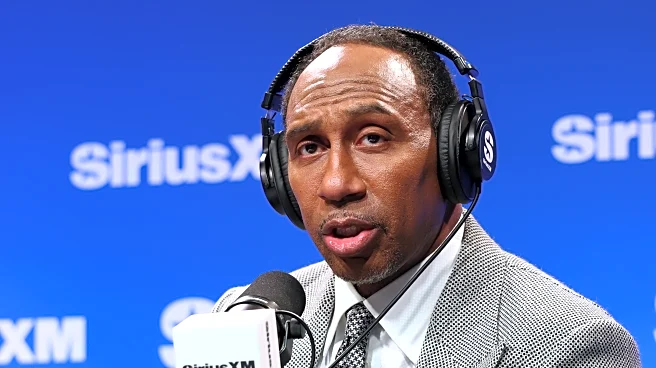What's Happening?
Filip Hallander, a rookie forward for the Pittsburgh Penguins, has been diagnosed with a blood clot in his leg and is expected to be out for at least three months. The Penguins placed Hallander on injured
reserve, and he will remain in Pittsburgh to rehabilitate with the team's medical staff and UPMC personnel. Hallander, who was selected in the second round of the 2018 NHL Draft, has played 13 games this season, contributing four points and maintaining a plus-4 rating. His absence is a significant loss for the Penguins, as he has been part of the top forward line alongside Sidney Crosby and Bryan Rust. The team is scheduled to play in the NHL Global Series in Stockholm, Sweden, but Hallander will not participate due to his medical condition.
Why It's Important?
Hallander's diagnosis and subsequent absence from the Penguins' lineup is a critical development for the team, impacting their performance and strategy. As a promising rookie, Hallander's contributions on the ice have been valuable, and his absence may necessitate adjustments in the team's roster and tactics. The situation underscores the importance of player health and safety in professional sports, highlighting the role of medical staff in diagnosing and managing serious health issues. For Hallander, this period of recovery is crucial for his long-term health and career prospects, as he aims to return to the ice in optimal condition.
What's Next?
The Penguins will need to adapt to Hallander's absence by potentially promoting other players to fill his role on the top forward line. The team's medical staff will focus on ensuring Hallander's recovery is thorough, prioritizing his health over a quick return to play. As the Penguins prepare for their upcoming games in the NHL Global Series, they may explore strategic changes to compensate for Hallander's absence. Hallander's recovery process will be closely monitored, with the aim of preventing any complications and facilitating a successful return to the sport.
Beyond the Headlines
Hallander's situation highlights broader issues related to athlete health and the pressures of professional sports. The diagnosis of a blood clot is a reminder of the physical demands placed on athletes and the potential health risks they face. This development may prompt discussions within the sports community about the importance of regular health screenings and preventive measures to protect athletes. Additionally, Hallander's absence could influence the Penguins' approach to player development and management, emphasizing the need for comprehensive support systems for athletes dealing with health challenges.










